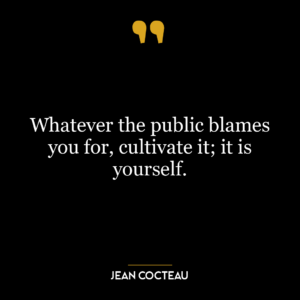This quote is a profound reflection on the power dynamics inherent in blame and accusation. When we blame others for our circumstances or problems, we inadvertently give them power over us. This power comes from the fact that we are essentially saying that they have the ability to affect our lives, our emotions, and our well-being. We are surrendering our own agency and responsibility, and placing it in their hands.
In essence, by blaming others, we are choosing to let them control us. We are saying that they have the power to make us feel a certain way or to dictate our circumstances. This is a form of disempowerment because it takes away our ability to control our own lives and our own reactions.
In today’s world, this idea is particularly relevant. With the rise of social media and the constant barrage of opinions and criticisms, it’s easy to fall into the trap of blaming others for our unhappiness or dissatisfaction. Whether it’s a political figure, a celebrity, or even a friend or family member, it’s easy to point fingers and say, "They are the reason I’m unhappy."
But in doing so, we are giving these people power over us. We are letting them dictate our emotions and our state of mind. This is not a healthy or productive way to live. Instead, we should strive to take responsibility for our own emotions and reactions. We should seek to find happiness and satisfaction within ourselves, rather than relying on others to provide it.
In terms of personal development, this quote serves as a reminder to take control of our own lives. It encourages us to stop blaming others and start taking responsibility for our own actions and reactions. By doing so, we can reclaim the power that we have inadvertently given to others and start to shape our own lives in the way that we want.
Ultimately, the quote is a call to action. It’s a call to stop playing the blame game and to start taking control of our own lives. It’s a call to empower ourselves, rather than letting others have power over us.





